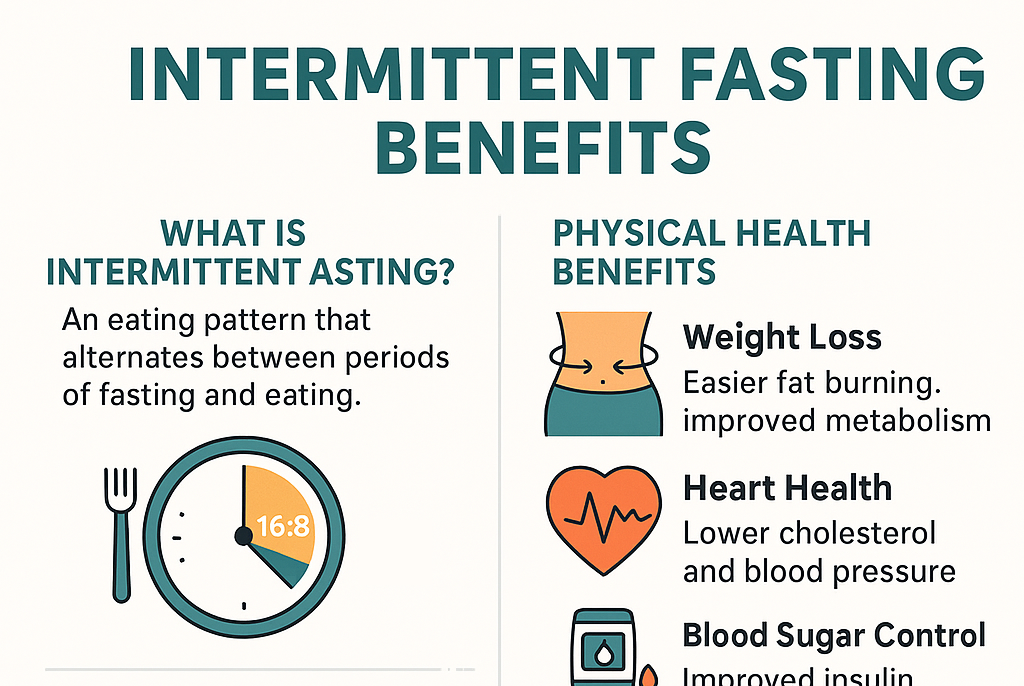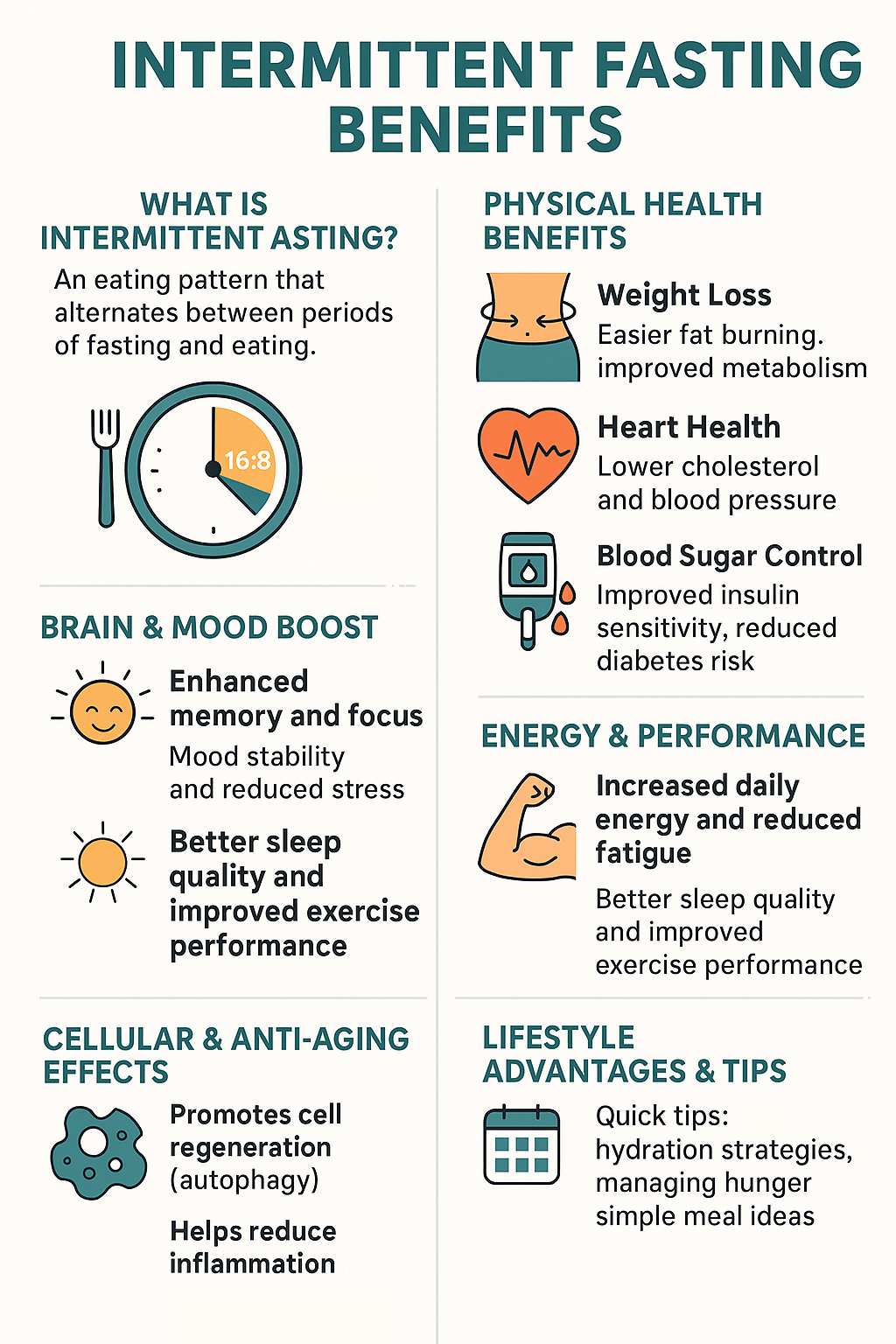Intermittent Fasting Benefits

Intermittent fasting (IF) encompasses a well-known eating pattern involving alternating fasting and eating periods. Unlike conventional diets prescribing what to eat, IF emphasizes when to eat. Ease of application, coupled with an impressive array of health perks backed by research, have propelled its popularity even further.
The most known benefits of intermittent fasting apply to weight loss. Research indicates that fasting helps to get rid of body fats more effectively through mechanisms that kick in when a person fasts. During fasting, the body shuts down metabolizing glucose and enters a state referred to as ketosis, where fat is being utilized for energy. This dual-mode functioning not only helps in burning body fat but also speeds up metabolism, thus sustaining weight management for a longer period thereafter.
Apart from weight control, intermittent fasting also improves heart health. Regular fasting is associated with declines in cholesterol and blood pressure levels, both of which are critical dimensions of heart health. By improving such indices, IF can reduce one's chances of heart diseases.
Another critical benefit is blood sugar control. Studies have repeatedly shown that IF increases insulin sensitivity and thus bears on the risk of developing type-2 diabetes. Greater insulin sensitivity implies that the body can effectively handle blood sugars, keeping them from spiking or crashing to harmful levels and, thus, encouraging good health in general.
Also, intermittent fasting helps with the brain and mood. Participants frequently report memory improvement and increase in concentration along with stable mood and low-stress levels. The science backs these cognitive benefits to the augmented production of a protein called brain-derived neurotrophic factor (BDNF), which is important for the health of neurons and their resilience. Besides, fasting helps a lot with enhancing sleep quality, adding to mood stabilization and cognitive performance.
On a cellular level, intermittent fasting induces a process known as autophagy, whereby damaged cells are disposed of by the body, and their regenerative replacement is activated. This cellular rejuvenation slows down aging, reduces inflammation, which is a common co-factor in most chronic diseases and aging processes. And less inflammation goes a long way toward good health not only in lowering risks toward various age-associated maladies.
Energy and physical performance also improve markedly due to IF. Better metabolic efficiency not only keeps daily energy levels greater but also lowers fatigue during times of fasting. This enhancement of energy could improve exercise performance and recovery pretty significantly in conjunction with good sleep patterns.
Last but not least, intermittent fasting really works for many people. With useful hints regarding fasting and hydration strategies, effective strategies for overcoming hunger, and simple meal-planning techniques, the integration of IF into daily life can be quite easy and feel sustainable.
From one angle to another, intermittent fasting is not just another dietary trend. It’s a well-supported approach with extensive benefits ranging from weight loss and heart health to improved brain function, energy, and anti-aging effects.
Intermittent fasting benefits inforgraphics

